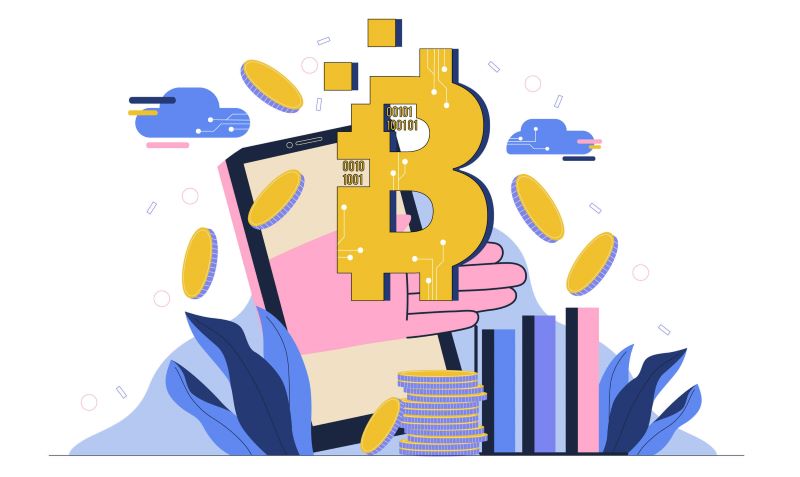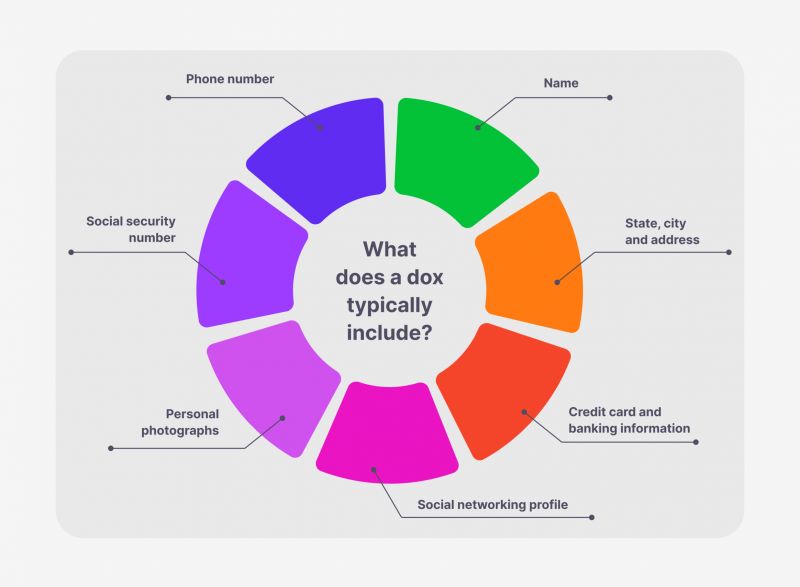What does dox mean in crypto? You’ve heard whispers about it – the term that hovers like a shadow over online transactions and the pursuit of privacy. It stands at the crossroads of security and anonymity, causing both fear and caution in the digital currency space. I’m tossing out the jargon and breaking it down. We’ll explore what it truly means to be ‘doxed’ in the realm of cryptocurrency and why it’s a game changer for safety. Discerning the dox meaning is your first step to maintaining control in a world where personal exposure online can have real-world consequences. Strap in as we unravel the puzzle of doxing and steer through the murky waters of online identity in the crypto world.
Exploring the Definition of Doxing in Cryptocurrency
Understanding the Dox Meaning in Digital Currency
When you hear ‘dox’ in crypto, it means trouble. It’s when someone digs up and shares your personal info online. Sadly, it’s not like sharing your favorite food. It poses real risks. It can link your real identity to your crypto dealings. This can attract hackers and scam artists.
The Consequences of Exposing Identity Online in the Crypto World
The fallout from doxing can be scary. It might hurt your reputation or worse, lead to theft or fraud. Thieves might break into your digital wallet or your home. Your whole sense of safety, online and offline, could crumble. We must all understand the dangers of sharing too much. We must also take action to keep our identities secure.
Now let’s dive deeper into these aspects.
Understanding the Dox Meaning in Digital Currency
Think of the crypto world as a big city. Your wallet is like your house. Doxing is like someone telling the city where you live. This could be an accident or on purpose. Either way, now everyone, good or bad, knows where you are. In the digital city of crypto, many opt to wear a ‘mask’—a pseudonym—to keep safe. This ‘mask’ helps us blend into the crowd. It makes sure prying eyes can’t link what we do in crypto to our real-world selves.

The technology behind crypto, called blockchain, usually hides our real names. But if someone connects our real name to our crypto activities, the mask falls off. Then, the link to our real identity gets out there, and that’s doxing. There are even services designed to track crypto transactions and find real-world identities. It can start with a name leaked on a forum, a photo, an email, or any small clue. Puzzling these pieces together is easier for the tech-savvy snoops out there.
The Consequences of Exposing Identity Online in the Crypto World
Now imagine your ‘crypto house’ location is out. What happens next? It could mean harmless jokes, or it could mean serious harm. Online, you might get unwanted messages or emails. With your real name tied to your crypto address, those who wish you harm now have a pathway to you. They might try to phish you—trick you into giving them access to your accounts. Or they might threaten to release more of your info unless you pay them. This is known as ransom. They could also target your physical mailbox or your actual house.
And it’s not just about what they steal. It’s about trust. If clients or partners learn you were doxed, they may worry. If a hacker can find you, they can find them too. So, jobs and deals might vanish before your eyes. Even worse, some folks might think you’re not careful or tech-smart. Once trust is broken, it’s tough to rebuild.
In essence, the phrase ‘dox’ in crypto signals a breach of the shield that should keep your private life private. Losing that shield means facing risks from small nuisances to full-on crime. This is why we always need to be on guard and take measures to protect our anonymity.
The Privacy Risks and Security Threats in Blockchain
Recognizing Cybersecurity Threats Facing Crypto Users
We hear a lot about doxing in cryptocurrency these days. But what is it? Doxing means someone finds and shares your personal info online without permission. In crypto, this can be risky as it could lead to stolen digital assets. Hackers can target your coins if they know who you are. That’s why privacy risks in blockchain are a hot topic.
Staying safe online means knowing the threats. Cybersecurity threats in crypto can come from many places. Phishing scams, for example, trick you into sharing secrets. These secrets can unlock your crypto funds for thieves. Address linking to identity is a big deal too. If someone knows your crypto address, they might track down your real-world info. That’s dangerous because it can lead to a data breach in digital assets.
Addressing the Dangers of Personal Information Leakage
Now, onto personal information leakage in crypto. Why worry about it? Simple: it means your details could spill out for everyone to see. If this happens, anti-doxing measures are crucial to protect yourself. Keeping your identity under wraps while using crypto keeps your coins safe.
Think of safeguarding anonymity in crypto as a superhero’s secret identity. You want to be like a hero who keeps their real name out of the spotlight. This way, the bad guys can’t harm you or your cash. So, using dox prevention strategies is like having a shield. It stops those looking to cause trouble.

What happens when your info is leaked? The repercussions of doxing can hit hard. Someone might steal your money, your identity, or even ruin your reputation. We don’t want that. Doxing attacks in crypto are on the rise because victims are often left feeling powerless. But there’s good news. With the right steps, you can avoid these problems. Securing your crypto identity is all about being aware and prepared.
Let’s not forget the harm caused by sharing too much. The dangers of information sharing are real. And doxing is not just a random threat. It’s a tool used by hackers. They hope to steal your coins or even hold your privacy for ransom. That’s why crypto community practices often include reminders to keep personal details private.
In short, protecting your sensitive information in crypto isn’t just smart. It’s essential. Next time you’re online, think like a spy. Stay in the shadows, keep your secrets safe, and don’t let the hackers win. It’s a digital game of cat and mouse, but with smart moves, you can stay ahead.
Strategies to Prevent Doxing and Safeguard Anonymity
Implementing Effective Anti-Doxing Measures
In the fast-paced world of crypto, doxing can be a huge problem. Doxing in cryptocurrency means someone’s personal info leaks onto the internet without their OK. It can happen if a user’s identity links to their wallet or transaction history. This kind of privacy slip can harm a person’s life, so anti-doxing steps are a must.
First, let’s talk about stopping dox attacks. One way to do this is by using tools that hide your data trail. Services that mix coins can break the link between your past and future transactions. These tools mix your digital currency with others’, making it hard to trace back to you.
Another key move is to check where you share info online. Be careful when joining new platforms or crypto groups. Hackers often set traps in these spots to trick users into giving up personal details. Always use a secure and private email address that does not tie to your real name or other accounts.
Lastly, double-check your security settings on any platform where you share info. Lock down your profiles and only share with folks you trust. And remember, social media can be a minefield. Never post anything that could hint at your crypto activities or wallet addresses.
The Role of Wallet Security and Personal Data Protection
Your wallet is the gateway to your digital assets, so its security is critical. Strong passwords and two-factor authentication (2FA) are your first line of defense. A hardware wallet, which stores your private keys offline, is even better. It’s like a safe for your digital money – hard for thieves to crack.
You should also be careful with your backup. This often comes as a seed phrase, a list of words that can restore your wallet. Keep it out of reach of others and never type it into a device connected to the internet unless you have to.
Talking about your crypto holdings can also put you at risk. Sometimes, folks want to brag about big wins in the crypto space. But giving details about your wealth or trades can make you a dox target.
And what about those KYC (Know Your Customer) rules? They make many in the crypto community sweat. You have to share personal info to use certain exchanges or services. To stay safe, pick ones with strong reputations for keeping user data under wraps.
Remember, personal data protection in crypto is no joke. Always ask yourself: Who really needs to know this about me? The less you spill, the safer you’ll stay. Protecting your anonymity is worth the effort – it keeps your assets secure and cuts the chance of nasty surprises from doxers.
In crypto, being anonymous means being safe. It’s a shield against doxers looking to mess with your life and money. Follow these strategies to stay in control of what you share. Trust me, taking these steps can save you a world of trouble.
Balancing Anonymity and Transparency in the Crypto Ecosystem
Understanding KYC Regulations and Crypto Pseudonymity
Do you ever worry who might find out about your crypto coins? You’re not alone. Crypto lets us keep our names hidden. Yet, we still need to follow rules, like KYC. “KYC” means “Know Your Customer.” It’s a way for services to know who their users are. This helps stop bad acts like money laundering. In crypto, KYC can feel like a trade-off. We give some personal info to use these services. Yet, we try to keep as much privacy as we can.
Crypto uses codes, not real names, to keep us private. Remember, privacy helps keep us safe from theft and hacks. It’s a secret code that says “this is me” without showing my real name. This is what we call “pseudonymity.” The neat thing is, you can have many codes in crypto. This is like having many different masks. Each one can protect your real identity in different ways.
But here’s the twist, staying hidden can be hard. Services ask for real names, and codes we use can sometimes lead back to us. This is why we need to understand and balance how much we share. Always think about what personal details you give out. Ask yourself if they really need to know everything about you.
The Impact and Implications of Doxing on Individuals and Communities
Now, let’s talk about “doxing.” What is doxing in cryptocurrency? It’s when your hidden details get out. It’s like someone taking off your mask without asking. This can happen if you’re not careful. Doxing can harm you in many ways. It can hurt your wallet and your feelings. Your coins could be stolen. Or worse, people might bother you or your family. That’s scary, right?
Doxing can hurt whole communities too. It can break trust and make people feel less safe. This makes sharing and trading less fun and more scary. Everyone starts to worry, “Am I next?” This fear can change how we all act online.

But, we can fight doxing. There are steps we can take to shield our details better. These “anti-doxing” steps are super important. They help keep our information a secret. Some use hard-to-crack passwords or keep their trades hush-hush. Others use special software that makes it tough to trace back to them. All these steps are like building a fort around your info. This keeps the bad folks out.
By learning about KYC and doxing, we get smarter about staying safe. We learn when to share and how to shield our info. This balance is key in the crypto world. Let’s keep our secrets safe but play by the rules too. This way, we can keep having fun with crypto and not worry too much.
Remember, your secret codes are your armor in the world of crypto. Guard them well and stay safe out there!
We’ve covered a lot about doxing in cryptocurrency in this post. We know now that doxing means someone’s personal info goes public without their okay. This can bring real trouble in the crypto world. We also talked about the big privacy risks in blockchain and the cyber threats crypto users face. Leakage of personal data is a danger we must all keep an eye on.
To stay safe, we need strong anti-doxing steps. Things like solid wallet security and keeping our personal info locked up tight help a lot. We also looked at KYC rules and how they fit with staying private but still playing by the rules in crypto.
Here’s the deal: the crypto world needs both privacy and clear rules. We have to protect ourselves and our communities from the harm doxing can do. Let’s use what we learned to keep our personal info safe and enjoy the benefits of digital currency without fear. Stay smart, stay secure, and remember these tips to help you steer clear of doxing dangers.
Q&A :
What is the meaning of ‘dox’ in the context of cryptocurrency?
Doxing in the realm of cryptocurrency refers to the action of revealing or publishing private or identifying information about an individual or organization involved in the crypto space. Originally rooted in internet culture, the term implies that someone’s anonymity or privacy has been breached, which can be particularly concerning in crypto transactions where anonymity can be a significant feature or security measure.
How can doxing affect individuals in the crypto community?
In the crypto community, doxing can have serious implications for individuals, as it can lead to a loss of privacy, potential security risks, and even financial harm. Users who value the anonymity provided by cryptocurrencies might face unwanted attention or exposure when their identities or personal details are made public without their consent.
Why is anonymity important in cryptocurrency transactions?
Anonymity in cryptocurrency transactions is important due to a variety of reasons, including personal privacy, protection from hackers or malicious actors, and the freedom to conduct transactions without external monitoring or interference. The cryptographic nature of digital currencies like Bitcoin was designed to offer a level of privacy not typically available in traditional financial systems.
What measures can crypto users take to protect against doxing?
Crypto users can take several steps to protect themselves against doxing, such as using pseudonyms, operating through secure VPN connections, avoiding the sharing of personal details online, and utilizing privacy-focused wallets and cryptocurrencies. Regularly updating security practices and being aware of information shared in public forums also help in reducing the risk of being doxed.
Can doxing be illegal in relation to cryptocurrency dealings?
Doxing can be illegal, depending on the jurisdiction and the nature of the information revealed. When it involves sharing private information without consent and with the intent to threaten, harass, or cause harm, it can be subject to legal consequences. Cyber laws in many regions treat doxing as a serious offense, especially when it involves financial data linked to cryptocurrency transactions.


